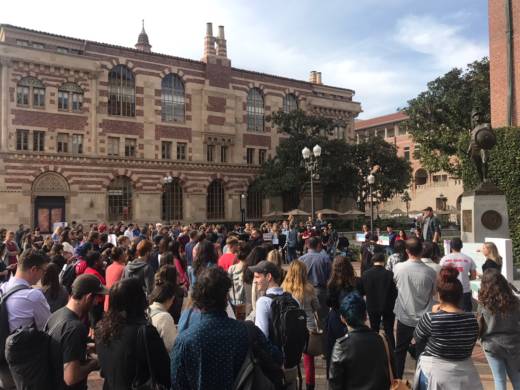If House Republicans get their way, taxes would go up dramatically for graduate students across the country. In protest of this potential increase, grad students on University of California campuses joined academics across the state and country and walked out of classes today.
The House proposal would tax waived tuition fees, which means graduate students could end up paying thousands more in taxes each year. This additional burden would make higher education increasingly unaffordable for graduate students, many of whom are already living at or below the poverty line.
This tax could radically alter how graduate schools operate. In many graduate programs, Ph.D. candidates work for universities. In exchange, the institution gives them a small stipend, often around $20,000 a year, and it also waives their tuition. These waived tuition fees are a big part of many graduate students' compensation packages. At private universities, tuition fees could be up to $50,000 a year.
Right now these working graduate students pay taxes only on their stipend income, not waived tuition fees. Since their stipends are around, or even below the poverty line, grad students end up paying very little in taxes.
Matt Gardner, a senior fellow at the Institute on Taxation and Economic Policy, said the decision not to tax waived tuition fees is in line with standard taxation principles. The same logic is at work behind the reason why we don’t tax workers for employer-sponsored health insurance.
